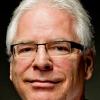The church we inhabit today is a lot different than the one I grew up in. Whether it was an English congregation or a German one, the worship services tended to have a familiar look and feel. “Mennonite” was somewhat predictable.
No longer! The worship debates of the 1970s and ’80s pale in comparison to the variety of worship practices that we see in the church today. On the language front, we have moved from worship in two dominant languages in Mennonite Church Canada to 17 different languages. Our church family has expanded and, with it, our diversity. While new congregations and cultures have added to the rich worship palette, we have also experienced an increased range of worship and theological expression among our historic congregations.
Worship styles vary dramatically. In one congregation, prayer might include everyone in the congregation praying aloud at the same time; in another, worship dances and exuberant emotional expression may be the norm; in some, sermons are barely 15 minutes, while in others, an hour is the expectation; and four-part harmony is a foreign concept in some of our Mennonite worship services.
Our Mennonite potlucks are changing, too. They now include Hmong spring rolls, Lao beef jerky and Cantonese chow mein, to name a few. As much as I love a nice warm zwiebach (rolls) with fresh butter or a tea ball rolled in sugar and dunked in maple syrup, I also love the new additions to the Mennonite table.
And, of course, it’s not just our food and worship that are changing dramatically; so is our theological expression. While we hold similar core theological convictions rooted in our Mennonite/Anabaptist faith heritage, the way we articulate them is becoming more diverse and our theological bandwidth is widening.
While this new level of diversity poses a significant challenge for the church, if we open ourselves to the Spirit and allow her to wisely steward this gift among us, it is also an incredible gift from God. Our biggest risk is to settle for a multicultural church in which we admire our diversity from a distance, enjoy each other’s ethnic dishes, but, in the end, never build meaningful relationships.
In the New Testament, Paul describes a vision of the church in which there is no Jew or Greek, no slave or free, but one body that is focused on authentic, mutual relationships, and in which each part is playing its unique role and offering its special gifts.
This means more than buying spring rolls at the Lao fundraising event; it means being in a meaningful relationship with my sisters and brothers who look at the world differently than I do and who express their faith in words and rituals that are different from mine.
I believe God is inviting us to build relationships among our diverse churches so that, with integrity, we can learn from each other, genuinely share power in our church organizations and be enriched by our varied expressions of faith.
Just imagine what a truly intercultural church centred in Jesus Christ could offer Canadian society and the incredible feast that awaits us at the rich banquet table that God is preparing to nourish our faith and our souls.
David Martin is MC Eastern Canada’s executive minister.
Read more From Our Leaders columns:
An incessant demand
Freedom of speech for Christian media?
'Where there is no vision...'
I smile because I'm grateful
Speak Jesus





Add new comment
Canadian Mennonite invites comments and encourages constructive discussion about our content. Actual full names (first and last) are required. Comments are moderated and may be edited. They will not appear online until approved and will be posted during business hours. Some comments may be reproduced in print.